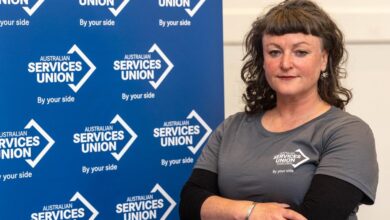Researchers find that the team culture and organisational structure of a general practice has a great influence on nurse activities.
If practice nurses are to work to their full capacity and capitalise on funding arrangements, hierarchical structures that continue to exist – with doctors at the top – in general practices have to be addressed, says a new study.
In a three-year study of practice nurse roles in 25 general practices, researchers found that the team culture and organisational structure had a great influence on nurse activities and their use of funding mechanisms.
It found that while almost all doctors mentioned the MBS fee-for-service items for wound care and immunization as “central planks” of their business model, these accounted for only 6 per cent of nurse activity.
More of their time was spent on other activities including home visits, monitoring patients and education of both patients and medical staff. Nurses, the study found, felt these activities often when unrecognised and unrewarded.
The findings, published in BMC Health Services Research also show that nurses often resent the requirement of their GP employers for a doctor to oversee all their activities, even when they have spent decades in practice.
In cases like this, the authors said there was often a threat to the stability of practice staffing numbers as nurses left to undertake other work. A number of nurses who felt that their plans to do more complex activities were unsupported by practices, left during the study period to take up other positions outside of general practice.
One nurse said: “I can feel my confidence slipping away because I have to get three people to look at a wound. I have to wait for someone to vaccinate, I can’t take a stitch out without somebody having a look at it, and I’ve been nursing for thirty-five years. And even with the registrar, he’s only been out for 12 months and I have to ask him is it all right if I vaccinate someone? So I find that quite belittling and I just find it so antiquated.”
Study author Dr Chris Pearce and colleagues said the extension of nurse fee-for-service items “could paradoxically limit nurses’ potential” by funding only narrow areas of care, and promote a focus on revenue generation over other nurse roles.
“We found that among the general practices that had a narrower focus – keeping an eye on specific item numbers rather than expanding the role of the practice nurse through a greater variety of item numbers – collaborative behaviour tended to be controlled by simple business procedures,” he said.
“For example the GP needed to be physically present in the nurse/patient encounter simply to enable the patient to obtain a Medicare rebate.”
They say that even block funding such as the PIP program for practice nurses in rural areas “may not be emancipatory if the practice is unprepared to grant nurses some autonomy over clinical decision making.”
Of the 25 practices studied, 24 per cent exhibited styles of working with nurses where she had little autonomy over her own work, and was delegated tasks by doctors.
Key work activities that are unsuited to FFS items and which are currently underfunded elements of nursing work are their work as educators. In interviews, no doctor mentioned the role of nurses in their practice as educators, even though this was very evident in the observation data.
Nurses in this study were generally the people who provided mentoring for junior doctors and other nurses, and, often in covert ways, education on quality and safety matters for older GPs, said Pearce.
This work, like much of their quality and safety work, is conducted in the space of other elements of nursing work, and is unfunded.
The authors suggest that changes are needed in the MBS schedule needs to encourage practice teamwork, and that nurses be given additional financial incentives on top of their salaries.
Email: [email protected]





